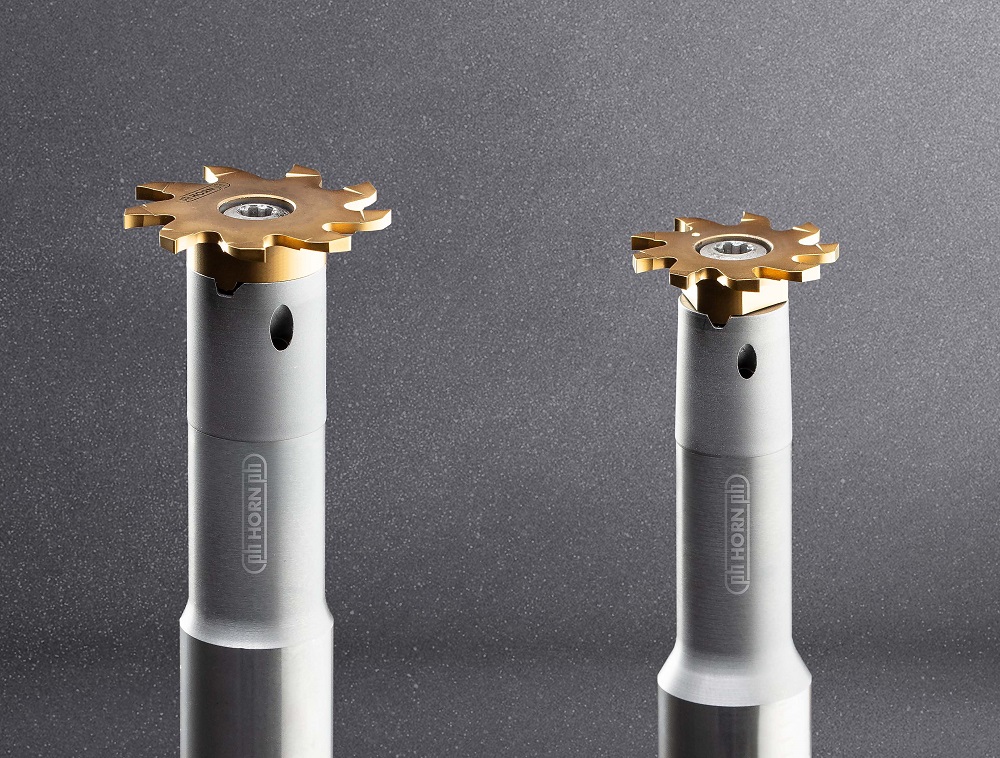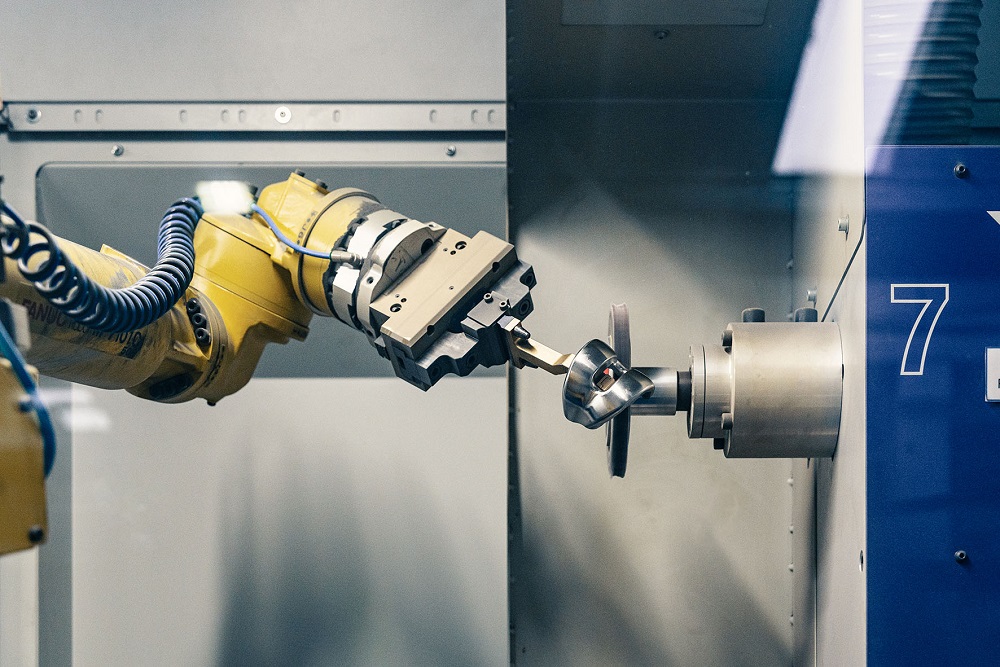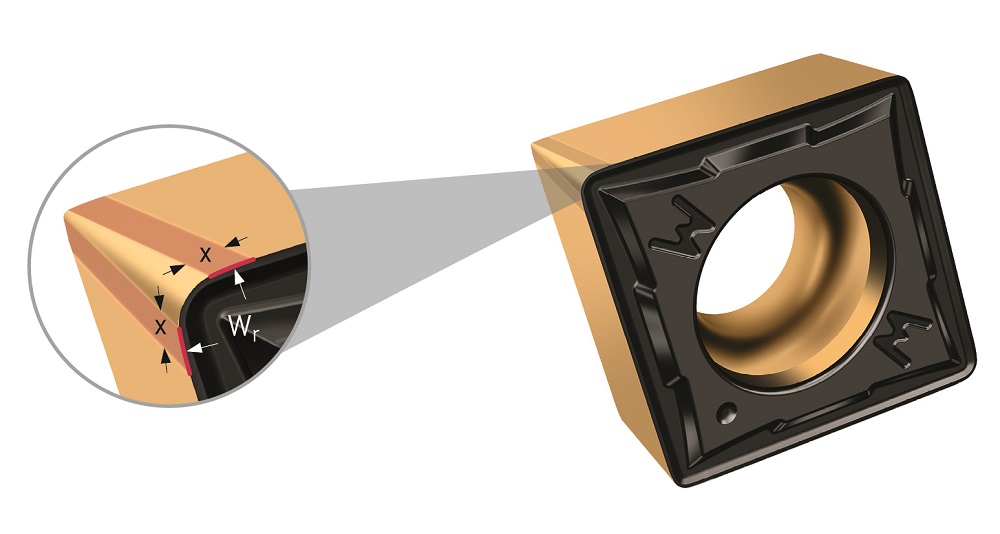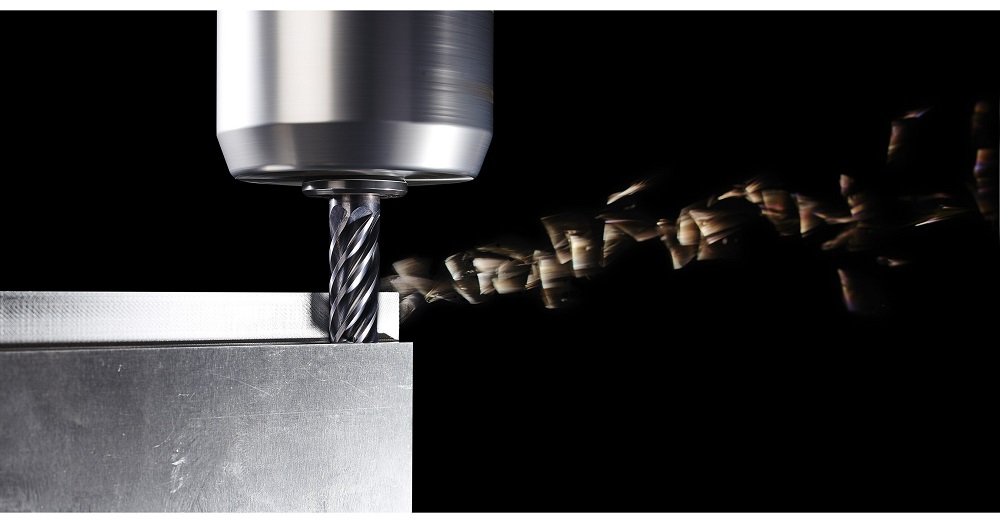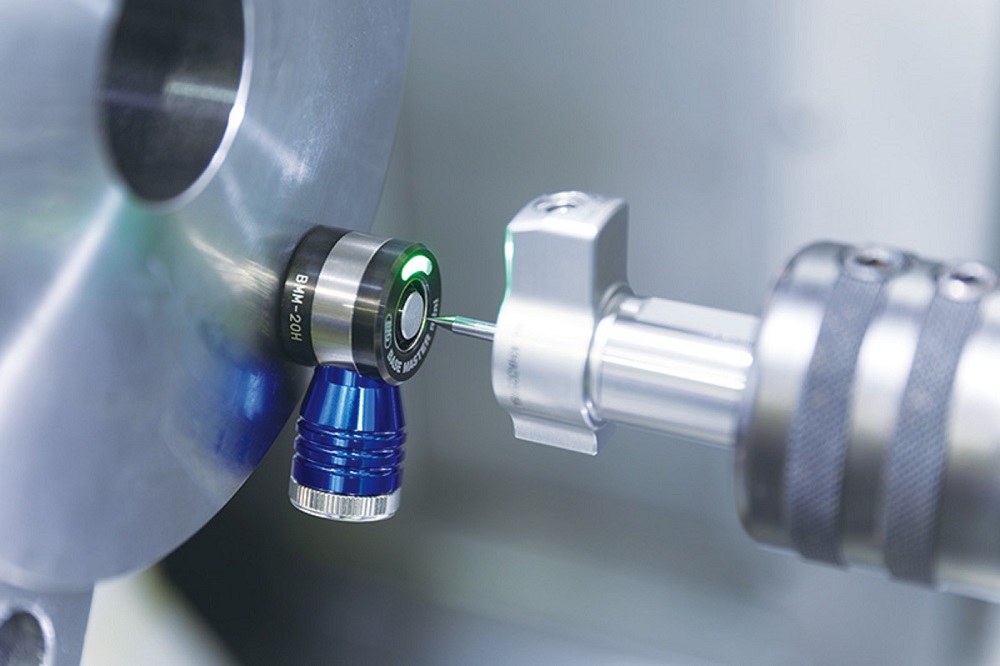Groove, cut-off and gear milling are just three processes that the circular interpolation milling system from Horn now performs even more productively following the introduction of a range of tools with nine cutting edges. The system can be used from an inside diameter of 8 mm for the precise boring of grooves down to 0.25 mm wide, or for milling splines. Standard tools and special variants are available.
Smaller diameter circular interpolation mills from Horn were previously available with exchangeable heads having a maximum of six teeth. Three extra cutting edges offer higher material removal rates, raising productivity by shortening cycles and, at the same time, extending tool life. In addition, the cutters run more quietly and with less vibration compared with tools having fewer teeth. Consequently, the dimensional accuracy and surface finish of components see improvements.
Horn stocks the nine-edged milling systems M911, M913 and M928 in widths from 1.5 to 3 mm. Maximum milling depths are 3.5, 4.5 and 6.5 mm respectively. The cutter heads are available with different coatings to suit the material in cut. Due to its mass, the solid-carbide tool shank ensures vibration damping during milling. Horn designed all variants of the shank for internal coolant supply.
For further information www.phorn.co.uk






